Filter by

Monsoon [+ other] Airs
Monsoon Assemblages is a research project funded by the European Research Council (ERC) under the European Union’s Horizon 2020 research and innovation programme (Grant Agreement No. 697873). Monsoon [+ other] Airs is the first of three publications by Monsoon Assemblages arising from symposia held at the University of Westminster (2017-2019). These form part of its agenda to foster interdisc…
- Edition
- -
- ISBN/ISSN
- 9781999938505
- Collation
- -
- Series Title
- -
- Call Number
- -
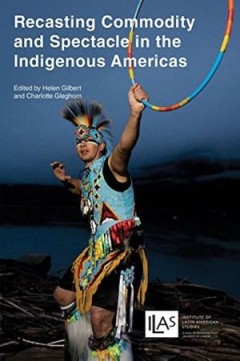
Recasting commodity and spectacle in the indigenous Americas
Indigenous artists frequently voice concerns over the commodification of their cultures, a process acutely felt by those living with the consequences of colonialism. This timely book, which features colour illustrations throughout, examines the ways in which contemporary indigenous peoples in different parts of the Americas have harnessed performance practices to resist imposed stereotypes and …
- Edition
- -
- ISBN/ISSN
- 9781908857088
- Collation
- -
- Series Title
- -
- Call Number
- -

Global Health Research in an Unequal World
This book is a collection of fictionalised case studies of everyday ethical dilemmas and challenges, encountered in the process of conducting global health research in places where the effects of global, political and economic inequality are particularly evident. It is a training tool to fill the gap between research ethics guidelines, and their implementation 'on the ground'. The case studies,…
- Edition
- -
- ISBN/ISSN
- 9781786390042
- Collation
- -
- Series Title
- -
- Call Number
- -
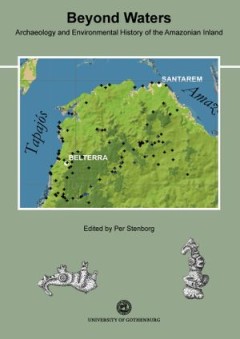
Beyond Waters Archaeology and Environmental History of The Amazonian inland
This book is one of the outcomes of the project Cultivated Wilderness: Socio-economic development and environmental change in pre-Columbian Amazonia (http://www.cultivated-wilderness.org/). The project has particularly focused on the previously relatively unknown prehistory of the Amazonian hinterland. Our work has revealed that pre-Columbian settlements in the Santarém region in the State of …
- Edition
- -
- ISBN/ISSN
- 9789185245666
- Collation
- -
- Series Title
- -
- Call Number
- -

Making Room for People
Making Room for People elaborates on preferences in housing. It explores how users, occupants, and citizens can express their needs, searching for the enhancement of individual choice and control over their residential environment, and the predicted positive spin-off’s for urban collectives. The central question is: What are the conditions under which an increase of people’s choice and voic…
- Edition
- -
- ISBN/ISSN
- 9789085940326
- Collation
- -
- Series Title
- -
- Call Number
- -

India’s Democracies
This volume is about India’s deep and complex relationship with its chosen form of government. It is an interdisciplinary book with approaches drawn from history, anthropology, sociology, political science and social geography. We believe this volume provides new perspectives on how to approach and analyse the complexity of India’s democracy. The book’s unfortunate publishing history also…
- Edition
- -
- ISBN/ISSN
- 9788215026886
- Collation
- -
- Series Title
- -
- Call Number
- -
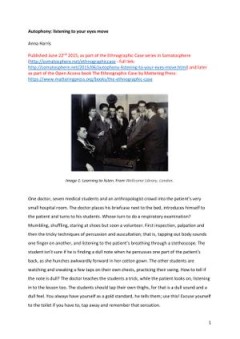
3. Autophony Listening To Your Eyes Move
I observed many instances of self-percussion during my fieldwork researching how listening to sounds is learned, taught and practiced in a Melbourne medical school and it’s connected teaching hospital. The students were sounding out their own bodies; practicing the technique while also feeling “dull” or “resonant” on their own body. This knowledge was then to be applied during their e…
- Edition
- -
- ISBN/ISSN
- 9780995527744
- Collation
- -
- Series Title
- -
- Call Number
- -

Child Poverty, Evidence and Policy : Mainstreaming Children in International …
This book is about the ideas, networks and institutions that shape the development of evidence about child poverty and wellbeing, and the use of such evidence in development policy debates.
- Edition
- -
- ISBN/ISSN
- 9781847424464
- Collation
- -
- Series Title
- -
- Call Number
- -
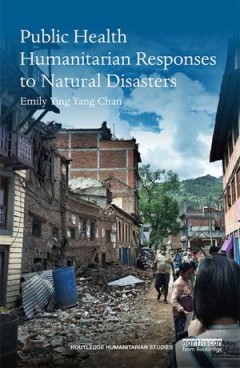
Public Health Humanitarian Responses to Natural Disasters
The pressure of climate change, environmental degradation, and urbanisation, as well as the widening of socio- economic disparities have rendered the global population increasingly vulnerable to the impact of natural disasters. With a primary focus on medical and public health humanitarian response to disasters, Public Health Humanitarian Responses to Natural Disasters provides a timely critica…
- Edition
- -
- ISBN/ISSN
- 1317357442
- Collation
- -
- Series Title
- -
- Call Number
- -
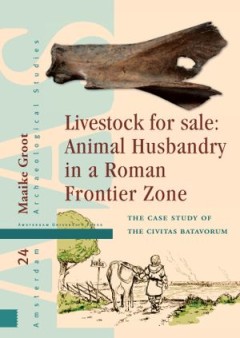
Livestock for Sale Animal Husbandry in a Roman Frontier Zone
The civitas Batavorum was a settlement on the north-western frontier of the Roman Empire, and it is now the site of numerous archaeological excavations. This book offers the most up-to-date look yet at what has been discovered, using the newest archaeological techniques, about the town and its economy, its military importance, and the religious and domestic buildings it held. It will be essenti…
- Edition
- -
- ISBN/ISSN
- 9789048530281
- Collation
- -
- Series Title
- -
- Call Number
- -
 Computer Science, Information & General Works
Computer Science, Information & General Works  Philosophy & Psychology
Philosophy & Psychology  Religion
Religion  Social Sciences
Social Sciences  Language
Language  Pure Science
Pure Science  Applied Sciences
Applied Sciences  Art & Recreation
Art & Recreation  Literature
Literature  History & Geography
History & Geography